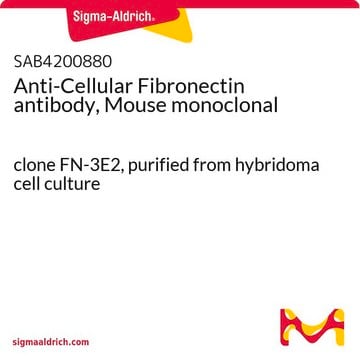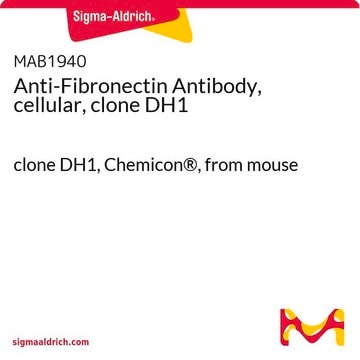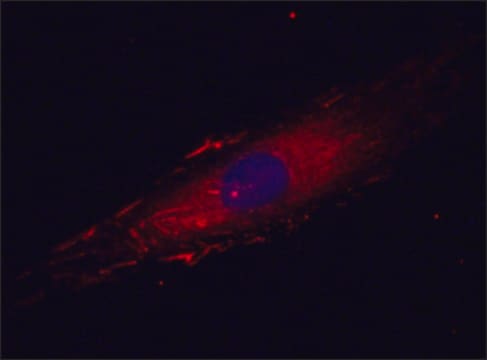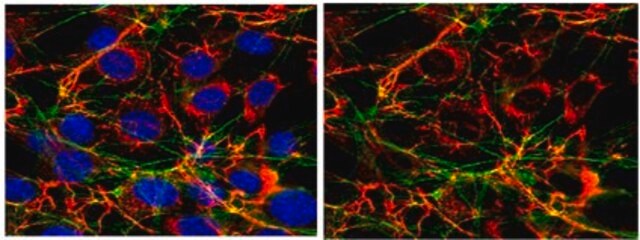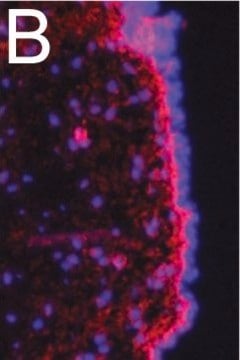SAB4200784
Anti-Cellular Fibronectin antibody, Mouse monoclonal
clone FN-3E2, hybridoma cell culture supernatant
Sinônimo(s):
Anti-CIG, Anti-Cold-insoluble globulin, Anti-FN
Selecione um tamanho
Selecione um tamanho
About This Item
Produtos recomendados
fonte biológica
mouse
Nível de qualidade
forma do anticorpo
culture supernatant
tipo de produto de anticorpo
primary antibodies
clone
FN-3E2, monoclonal
Formulário
buffered aqueous solution
peso molecular
~220-260 kDa
reatividade de espécies
chicken, rat, human, mouse
técnica(s)
immunoblotting: suitable
immunofluorescence: 1:2,000-1:4,000 using human foreskin fibroblast Hs68 cells
immunohistochemistry: suitable
Isotipo
IgM
nº de adesão UniProt
Condições de expedição
dry ice
temperatura de armazenamento
−20°C
modificação pós-traducional do alvo
unmodified
Informações sobre genes
human ... FN1(2335)
Categorias relacionadas
Descrição geral
Imunogênio
Aplicação
- immunoblotting
- immunofluorescence
- immunohistochemistry
Ações bioquímicas/fisiológicas
forma física
Outras notas
Não está encontrando o produto certo?
Experimente o nosso Ferramenta de seleção de produtos.
Código de classe de armazenamento
10 - Combustible liquids
Classe de risco de água (WGK)
WGK 3
Ponto de fulgor (°F)
Not applicable
Ponto de fulgor (°C)
Not applicable
Escolha uma das versões mais recentes:
Certificados de análise (COA)
Não está vendo a versão correta?
Se precisar de uma versão específica, você pode procurar um certificado específico pelo número do lote ou da remessa.
Já possui este produto?
Encontre a documentação dos produtos que você adquiriu recentemente na biblioteca de documentos.
Active Filters
Nossa equipe de cientistas tem experiência em todas as áreas de pesquisa, incluindo Life Sciences, ciência de materiais, síntese química, cromatografia, química analítica e muitas outras.
Entre em contato com a assistência técnica


